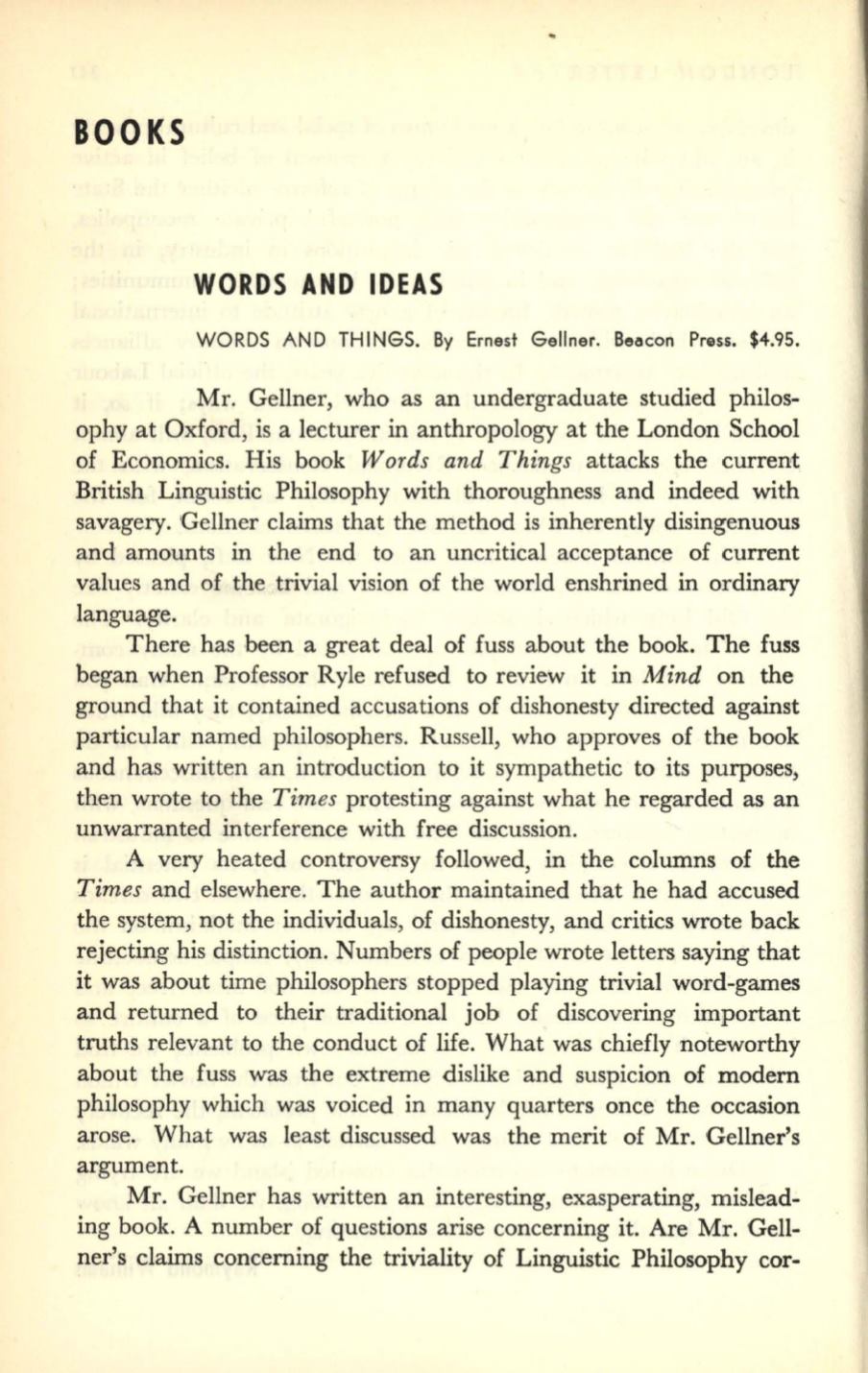
BOOKS
WORDS AND IDEAS
WORDS AND THINGS. By Ernest Gellner. Beocon Press. $+.95.
Mr. Gellner, who as an undergraduate studied philos–
ophy at Oxford, is a lecturer in anthropology at the London School
of Economics. His book
Words and Things
attacks the current
British Linguistic Philosophy with thoroughness and indeed with
savagery. Gellner claims that the method is inherently disingenuous
and amounts in the end to an uncritical acceptance of current
values and of the trivial vision of the world enshrined in ordinary
language.
There has been a great deal of fuss about the book. The fuss
began when Professor Ryle refused to review it in
Mind
on the
ground that it contained accusations of dishonesty directed against
particular named philosophers. Russell, who approves of the book
and has written an introduction to it sympathetic to its purposes,
then wrote to the
Times
protesting against what he regarded as an
unwarranted interference with free discussion.
A very heated controversy followed, in the columns of the
Times
and elsewhere. The author maintained that he had accused
the system, not the individuals, of dishonesty, and critics wrote back
rejecting his distinction. Numbers of people wrote letters saying that
it was about time philosophers stopped playing trivial word-games
and returned to their traditional job of discovering important
truths relevant to the conduct of life. What was chiefly noteworthy
about the fuss was the extreme dislike and suspicion of modern
philosophy which was voiced in many quarters once the occasion
arose. What was least discussed was the merit of Mr. Gellner's
argument.
Mr. Gellner has written an interesting, exasperating, mislead–
ing book. A number of questions arise concerning it. Are Mr. Gell–
ner's claims concerning the triviality of Linguistic Philosophy cor-


